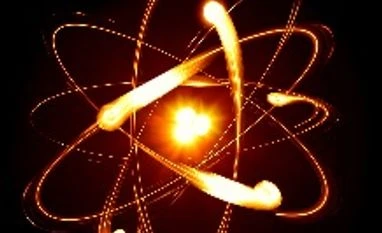Japan is a major player in the nuclear energy market and an atomic deal with it will also make it easier for US-based nuclear plant makers Westinghouse Electric Corporation and GE Energy Inc to set up atomic plants in India as both these conglomerates have Japanese investments.
The agreement, featuring broad contours of cooperation in the nuclear field, was signed after Prime Minister Narendra Modi and his Japanese counterpart Shinzo Abe held the ninth annual Indo-Japan summit talks here.
Reflecting the importance of the nuclear pact, Modi said it was more than just an agreement and that it was a "shining symbol" of a new level of mutual confidence and strategic partnership between the two countries towards the cause of a peaceful and secure world.
At a joint media event with Modi, Abe said Japan's cooperation with India in the nuclear field will be limited to peaceful objectives.
There was political resistance in Japan to go ahead with a nuclear pact with India, particularly after the disaster at the Fukushima Nuclear Power Plant in 2011.
The two Prime Ministers welcomed the agreement reached between the two Governments on the agreement between Japan and India for cooperation in the peaceful uses of nuclear energy, and confirmed that this agreement will be signed after the technical details are finalised, including those related to the necessary internal procedures, a joint statement issued after the talks, said
"We have achieved substantial progress as the key part of the agreement has been done," Foreign Secretary S Jaishankar told reporters. He said the pact will help Westinghouse Electric Corporation and GE Energy Inc to do nuclear business in India as both have Japanese investments.
Asked whether it was a framework agreement, he said "we have concluded the negotiations" but added certain legal and technical issues will have to be thrashed out for the final pact. "It will need legal scrubbing and other technical details will have to be finalised.
Jaishankar said Japanese side was conveyed about the various aspects of India's nuclear liability regime.
On whether Japanese side raised the isue of tracking of spent fuel, the foreign secretary said India has addressed the issue with a host of countries and its "template" on the issue satisfied all of them.
Asked about issues relating to reprocessing, he said any solution to the issue with Japan will be in consonance with India's long-standing policy.
"It is an important development, not complete development", Jaishankar said when asked to comment on the nuclear pact
"The two Prime Ministers, on the occasion of the 70th year since the atomic bombings of Hiroshima and Nagasaki, reaffirmed their shared commitment to the total elimination of nuclear weapons.
"They called for an immediate commencement and early conclusion of negotiations on a non-discriminatory, multilateral and internationally and effectively verifiable Fissile Material Cut-off Treaty (FMCT) on the basis of Shannon Mandate," said the joint statement.
It said in this context, Abe stressed the importance of early entry into force of the Comprehensive Nuclear Test Ban Treaty (CTBT) which should lead to nuclear disarmament.
"They also supported the strengthening of international cooperation to address the challenges of nuclear proliferation and nuclear terrorism," it said.
India and Japan had started negotiations for the nuclear cooperation in June 2010. It was halted after the mishap at Fukushima plant on March 11, 2011.
A section in Japan was of the view that the pact should not be finalised as India is not a signatory to the Nuclear Proliferation Treaty.
)